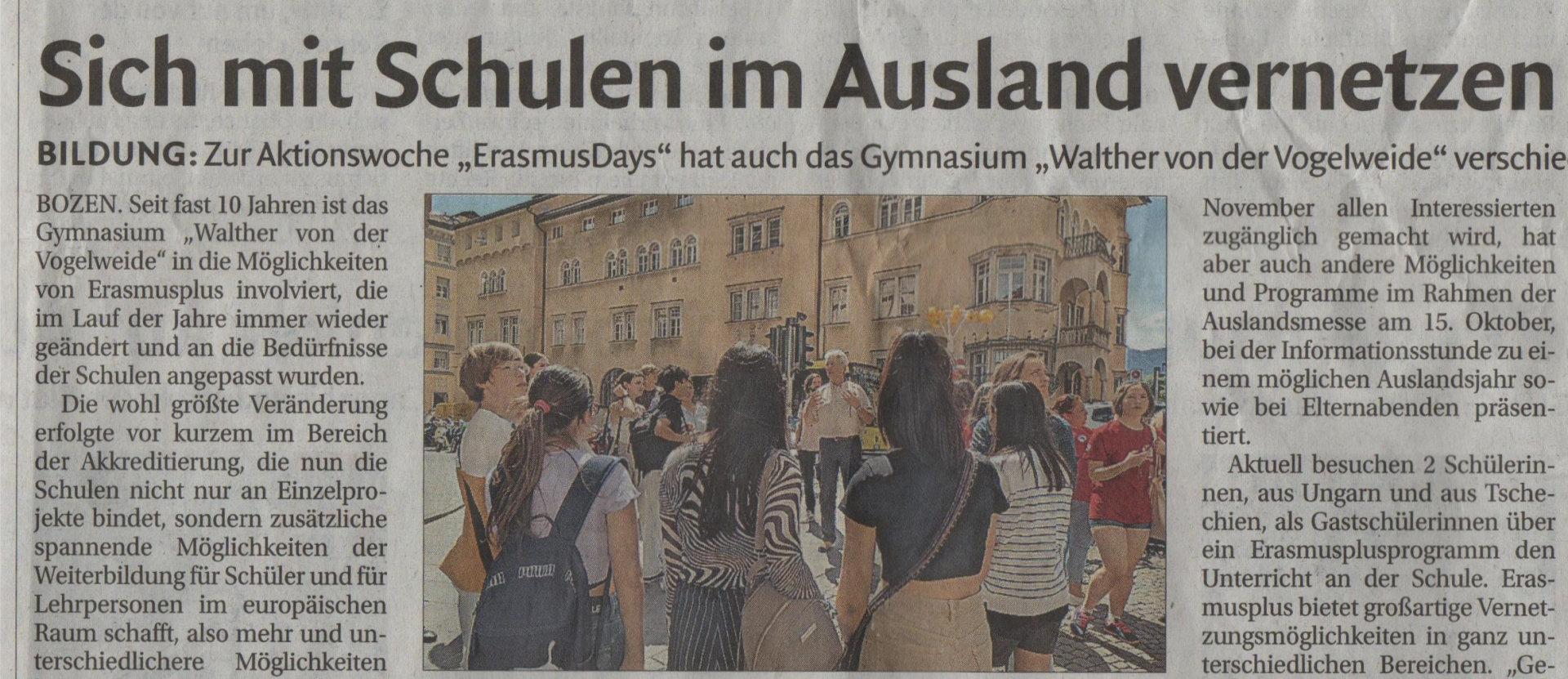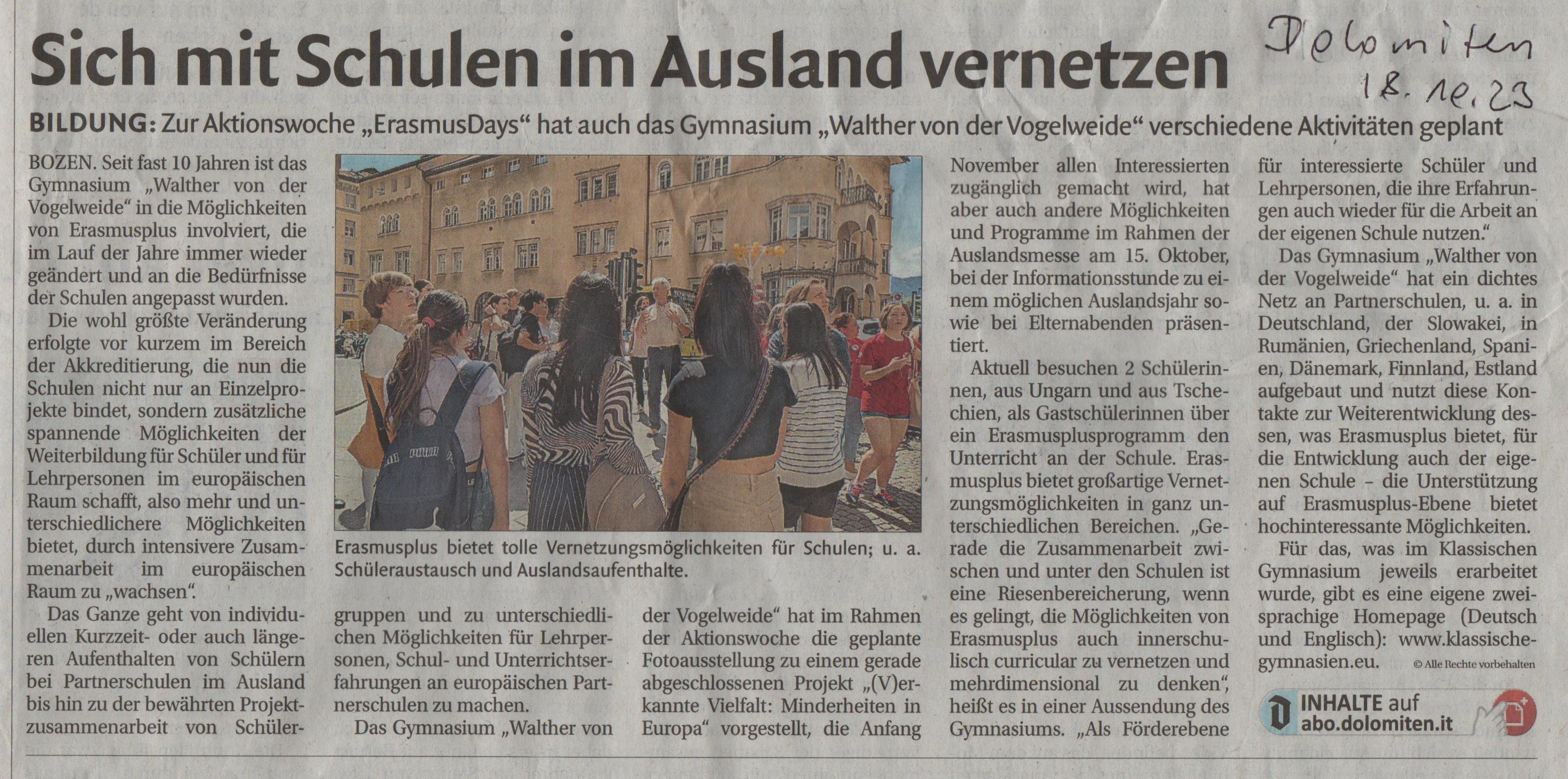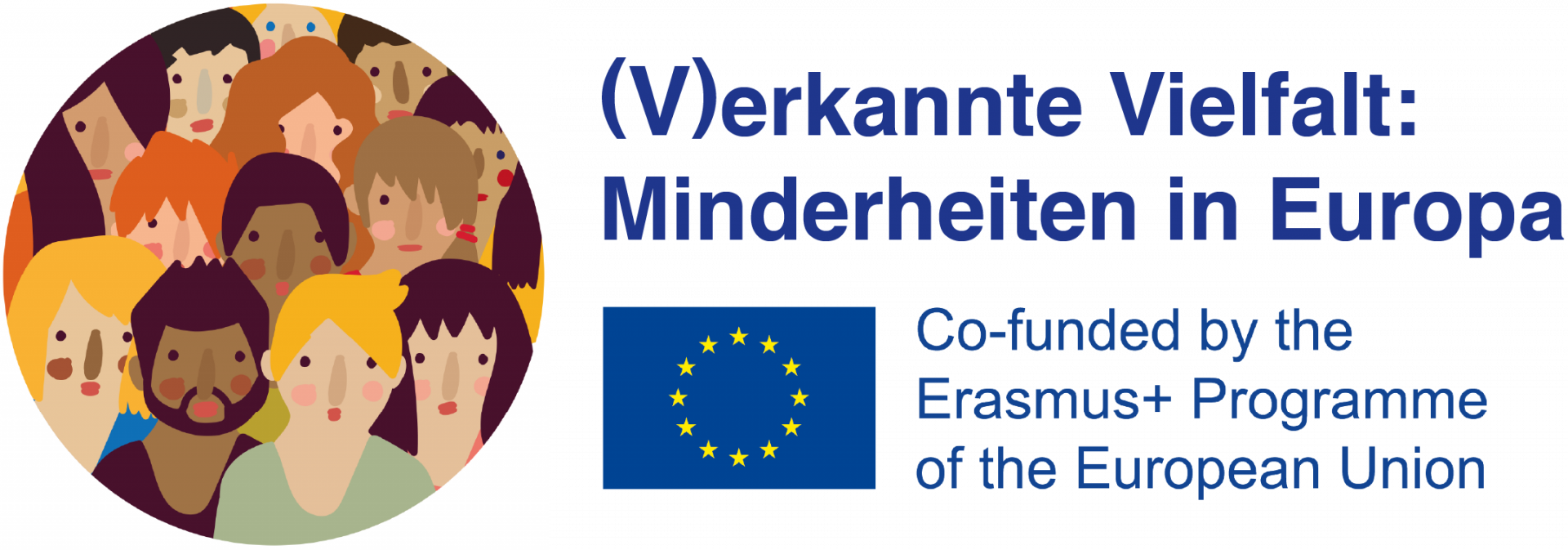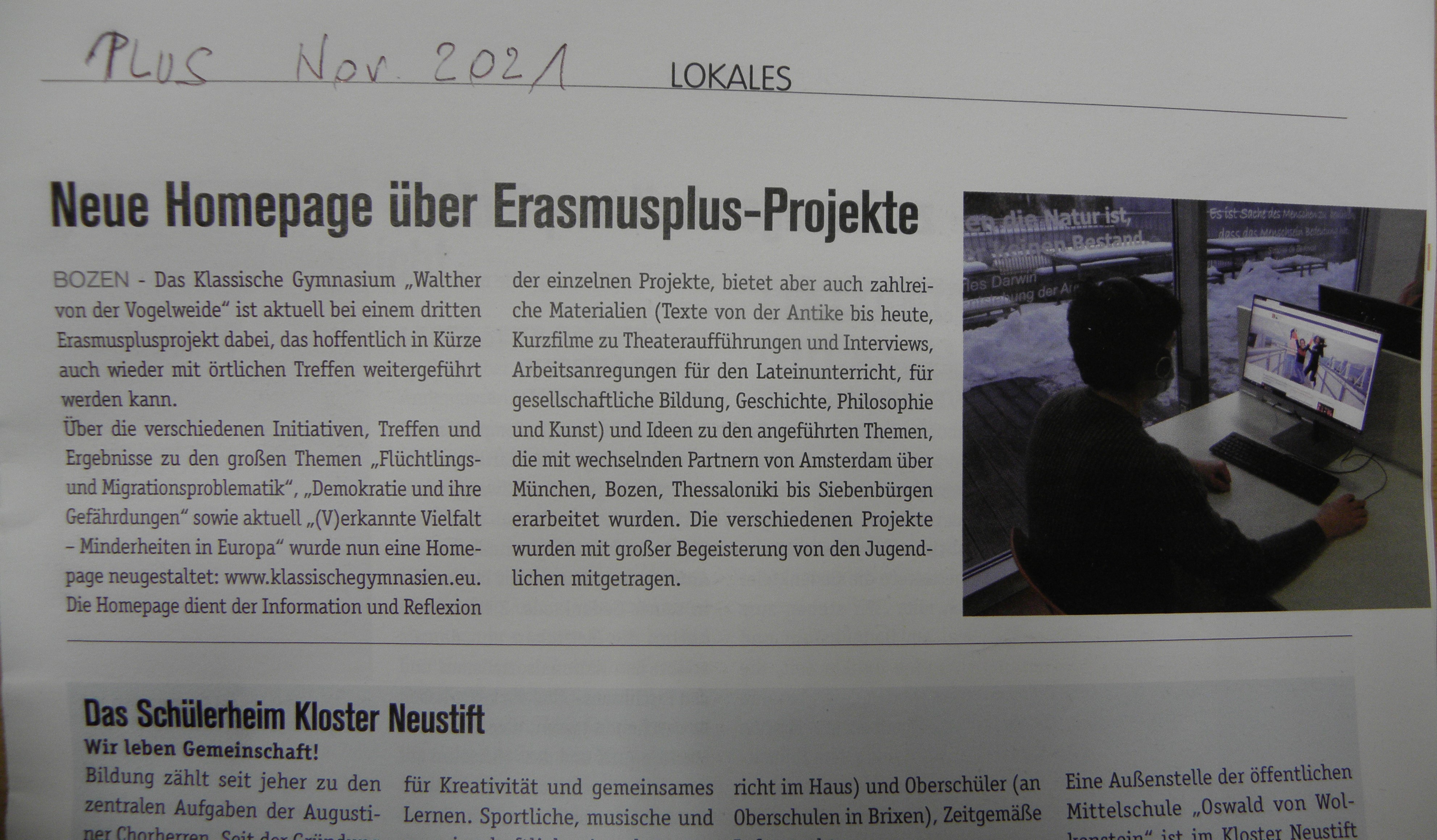-
Project Aims
- Desire for peace
- 1. München, Wittelsbacher Gymnasium: Friedenshoffnungen und Friedenssicherung in der Antike/ Hoping for Peace in Ancient Times
- 2. Zlaté Moravce, Gymnazium Janka Krala: Frieden und Sport/ Peace and Sports
- 3. Bozen, Gymnasium „Walther von der Vogelweide“: Friedenssicherung in heutiger Zeit?/ Peacekeeping in Modern Times
- 4. Lesbos, Mytilene Music School: Frieden und Versöhnung, musikalisch/ Peace and reconciliation, musically
- 5. Braşov, Honterusgymnasium: Bilder von Krieg und Frieden in der eigenen Geschichte/ Images of war and peace in one’s own history
- Participants
- Press
- Picture Gallery
- Former projects
(Un)recognized diversity: Minorities in Europe
About 8 percent of EU citizens belong to linguistic or cultural minorities; around 10 percent speak regional or minority languages.These figures are proof of the fact that Europe consists of a mosaic of cultures, languages, religions and traditions, but with identical values cherished by their representatives. A common understanding is also that all citizens should have the right to use their mother tongue in the streets and public places, without fear of negative consequences. With the phenomenon of linguistic and cultural minorities being of special importance for South Tyrol and Transylvania, young people of the other school locations (Munich, Amsterdam) are more likely to encounter the problem of minorities in connection with the question whether e.g. people from different religions (Muslims, Jews) are accepted by the majority society; this also applies to socially handicapped groups like refugees or homeless persons and persons with lower educational achievements or who are physically handicapped: On the one hand they experience much understanding, on the other hand they encounter numerous practical difficulties in everyday life and need determined measures for their protection.Sooner or later, students as future grown-ups will have to think about practical ways how to adequately participate in political and social life.
Therefore, it is important to raise awareness of this commitment both in teachers and students, in order to discuss in detail the background facts of problems of minorities and how to deal with them in an adequate way.Assisted by their teachers and external partners, the participating students look into this matter not only theoretically but also in a constructive and practical way (theatrical play in Amsterdam, photographical work, exhibition, published paper). Know-how, contacts, and experience from the two earlier Erasmus projects will be made available by the participating schools.
So, in the projected collaboration students will
- discuss the rather complex notion ‘minorities’: social, religious, linguistic, cultural minorities
- especially reflect this notion with ancient Greece and Rome in mind
- experience in practical situations from which conditions minority situations arise, how minorities live and what is important to them, explore the roots of uncertainty and malpractice, both in former and in present times
- learn about the official EU opinion towards minorities, both with regard of its historical development and the perspective of different member states
- find an approach towards the notion of minorities from different aspects and find successful examples of so-called inclusion
- involve themselves also in a practical, activity-oriented way with the subject matter, working on paradigmatic classical texts and put them onstage
- reflect and present their results (travelling exhibition, book publication, maybe some radio feature).
In this way, participants will broaden their methodical and, above all, social skills. The age of the participating students will be between 13 and 17 years. It is important for us that as many students as possible can take part in some cross-national activity. We especially will take care of the interlocking of scholastic and out-of-school work; in this way, the project will also create some long-term influence on the training of the teachers of the participating schools.Teachers and students will share their activities on a common homepage (www.klassischegymnasien.eu) and in parts also on ETwinning platform with all persons interested in the subject matter. Material will be developed which can be used not only within lessons and for school projects but also e.g. for suitable exhibitions.It should be clear that also in Classical High-Schools, both teaching and learning has to be done in a more innovative way. While discussing notions from past times, we will try to find up-to-date ways of how to deal with a central social and political phenomenon. Every cross-national meeting of the participants will be dedicated to some key aspect of the subject matter which will be prepared and followed up by the participating schools, including practical work like in workshops. The groups of students will be formed and mixed up from the different participating schools.Working together with persons from different occupational fields (museum, theatre, politics, artistic photography, journalism) will also deliver to the students some valuable insights into future occupational areas.



